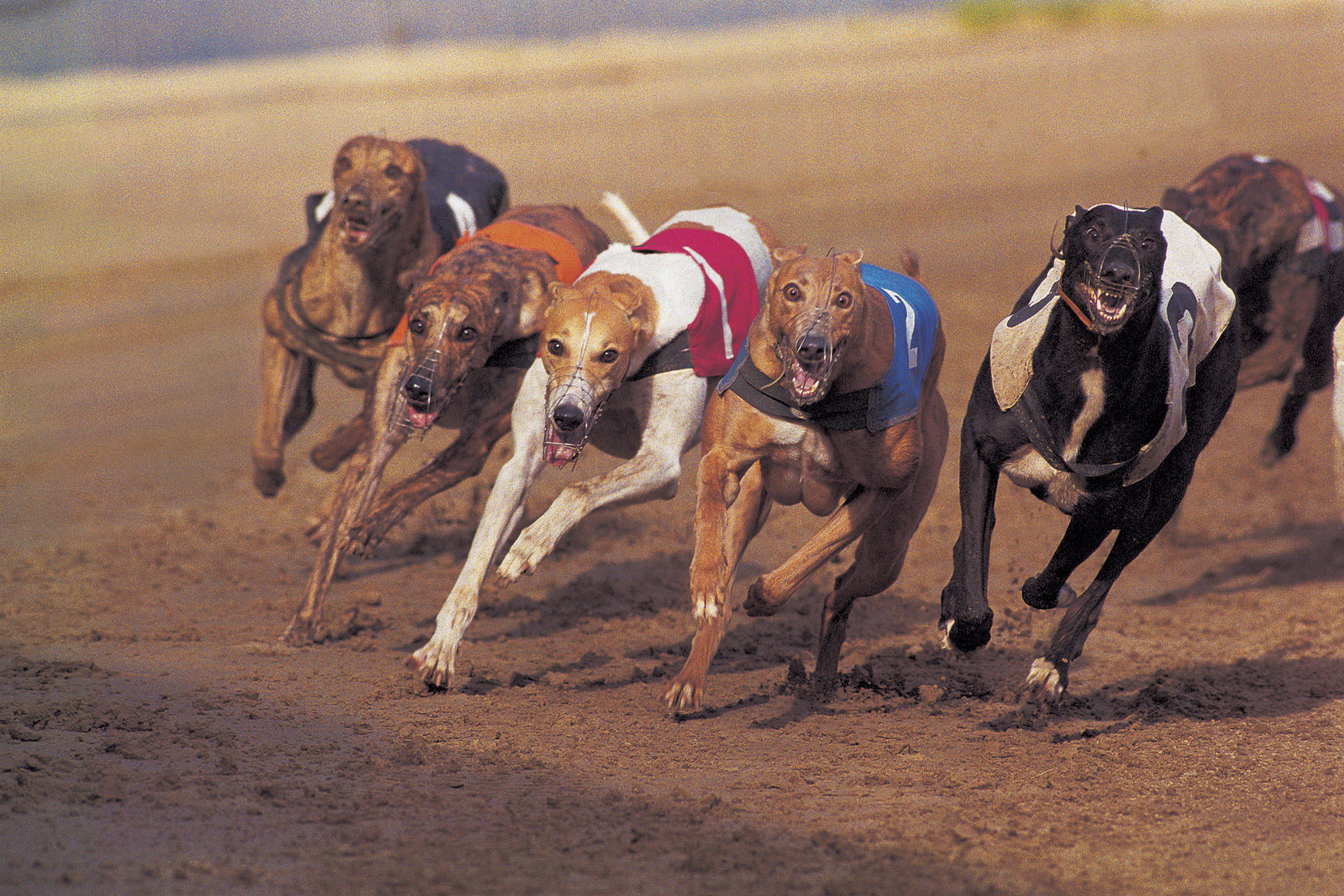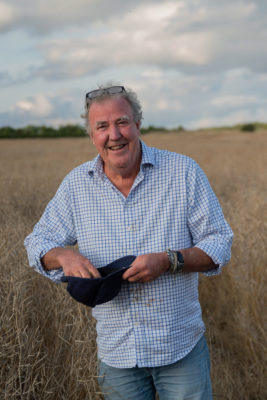Wales Is Set To Ban Dog Racing – But What Does It Mean For Horse Racing?
By
11 months ago
As New Zealand, Italy, Argentina and even the US introduce greyhound racing bans, it seems this long-running custom might be drawing to a close

With age-old roots, dog racing is a custom many fans are reluctant to relinquish. But news from the Senedd this week hints greyhound racing might finally be coming to an end. Here’s a brief history of the controversial sport, plus everything we know about a potential ban.
Is Dog Racing Finally About To Be Banned In The UK?
Did you know the advent of modern greyhound racing actually stemmed from a desire to protect jack rabbits? In 1912, American inventor Owen Patrick Smith created the first mechanical hare, opening the world’s first professional dog racing track in 1919 and adding his mechanical lure in 1920, all with the aim of making greyhound racing more akin to horse racing: a victimless, clean game hosted for the entertainment of cash-happy gamblers. It was an instant hit, and by 1926 had been imported to the UK – specifically to Manchester’s Belle Vue Stadium. By 1927, 40 tracks were operating across the UK, with the sport’s popularity peaking in 1946 when post-WW2 jubilation lured 70 million attendees to the tracks.
Dog Racing Is In Decline
But the glory days are over: dog racing has been in decline for a long time, with just 19 stadiums across England, Scotland and Wales as of 2025. Why? Other sports like football and rugby have superseded it in popularity, the middle classes generally abandoned the sport when the working classes got a hold of it, and from the ‘80s onwards, people really started to care for the welfare of the dogs on the tracks.
Is Dog Racing Animal Cruelty?
While rabbits may not be killed for the entertainment of spectators, greyhounds are often mistreated by a minority of greedy owners craving a win. Likewise, until the early 2000s, the post-racing life of a greyhound was entirely unregulated: dogs were unregistered and typically shot and buried as soon as their fitness peak began to wane.
While the industry has totally transformed itself in recent years – dogs are now registered from birth to retirement, and then rehomed – reports still surface including everything from accidents and injuries to starvation and drugging dogs with steroids and even cocaine. Between 2018 and 2023, 2,700 greyhounds died and a further 26,500 injuries were recorded by the industry regulator, Greyhound Board of Great Britain (GBGB). The RSPCA has long been calling on governments to #CutTheChase and ban dog racing because of this.
Wales Moves To Ban Dog Racing
And there’s finally some traction: on 18 February, the Welsh Government revealed it would be implementing a dog racing ban ‘as soon as practically possible’ – the first UK country to do so.
‘I want a ban to come into force as soon as practicably possible,’ Deputy First Minister Huw Irranca-Davies said in a statement. ‘There will be work to do in ensuring the dogs, their owners, and those involved in the industry around the racetrack, can wind down from this activity while still protecting the welfare of dogs currently within the industry, the local community and the local economy.’
The news was welcomed by charities like Dogs Trust: ‘Greyhound racing is inherently dangerous for the dogs involved, and running at speed around oval tracks causes significant injury to many dogs,’ chief executive Owen Sharp commented. ‘In some cases, the injuries are so severe that it is necessary to euthanise the dog. […] Over the past six years, more than 2,700 dogs have lost their lives in the UK in the name of entertainment, with many more suffering serious or life-changing injuries. This is unacceptable, and we are pleased the Senedd is ready and willing to take decisive action to prevent further deaths and injuries.’
But of the 18 registered dog racing tracks in the UK, only one is in Wales – so there’s a long way to go.
Will Dog Racing Be Banned In The Rest Of The UK?
In the wake of Irranca-Davies’ announcement, the UK government declined to comment on whether a dog racing ban is being considered in England. It’s worth noting that the previous Conservative government totally ruled out the idea of a ban. Meanwhile in Scotland, the Scottish Greens are urging the Scottish Government to follow Wales’ example. ‘You can tell a lot about a society by how it chooses to treat voiceless animals,’ says MSP Mark Ruskell. ‘If we are a nation of dog lovers then we need to back that up by ensuring that they are protected.’
At present, Scotland is home to only one active dog racing track – Thornton Stadium in Fife – which is entirely unregulated.
Naturally, the GBGB has pushed back against Wales’ decision. CEO Mark Bird said the Senedd’s announcement has ‘nothing to do with greyhound welfare and everything to do with pressure from the extreme animal rights movement’. Bird also pointed out that Irranca-Davies has ‘failed to meet with the industry in Wales’ despite ‘repeated requests’, accusing the politician of engaging instead ‘on numerous occasions with campaign groups known to use shock tactics and misleading information to achieve their ends’.
Bird added the ban ‘will do absolutely nothing to support greyhound welfare’ and seeks ‘to drown out the voice of local people including those whose livelihoods rely on the sport’. When asked if he would consider compensating stakeholders who would lose money as a result of the ban, Irranca-Davies said that is not an ‘issue we are considering at all’.
The Countryside Alliance is also critical of the move. ‘It has been wholly irresponsible of Welsh Government to make this announcement, and say it will be brought into effect as soon as possible, while not clarifying how greyhounds will be catered and cared for as a result of the ban,’ Rachel Evans, director of the Welsh chapter, said in reply. The Countryside Alliance and Animal Aid point out that banning dog racing will force thousands of dogs into already-stretched animal shelters.
What Does The Ban Mean For Horse Racing?
Of course, there’s also concern for the fate of other animal races. ‘This is a very slippery slope,’ Evans said. ‘This could lead to further bans on animal related activities here in Wales.’
Record-breaking horse trainer Mark Johnston has called on the horseracing industry to support the greyhound racing industry, calling Wales’ decision ‘a huge wake-up call’. ‘If greyhound racing can be banned in Wales, then it would be foolish to think horseracing is not at risk,’ he says.
Johnston added that Wales’ decision is ‘desperately frustrating and concerning’, ‘not just the ban but the reasoning behind it’. ‘The argument is about dogs getting injured when racing, and I hesitate to say it, but the injury rate in greyhounds is far less than in racehorses,’ Johnston says. ‘Horseracing cannot assume that this fate won’t happen to us and has to be on the front foot.’
While many countries have banned dog racing, horse racing has never been made illegal anywhere.






















